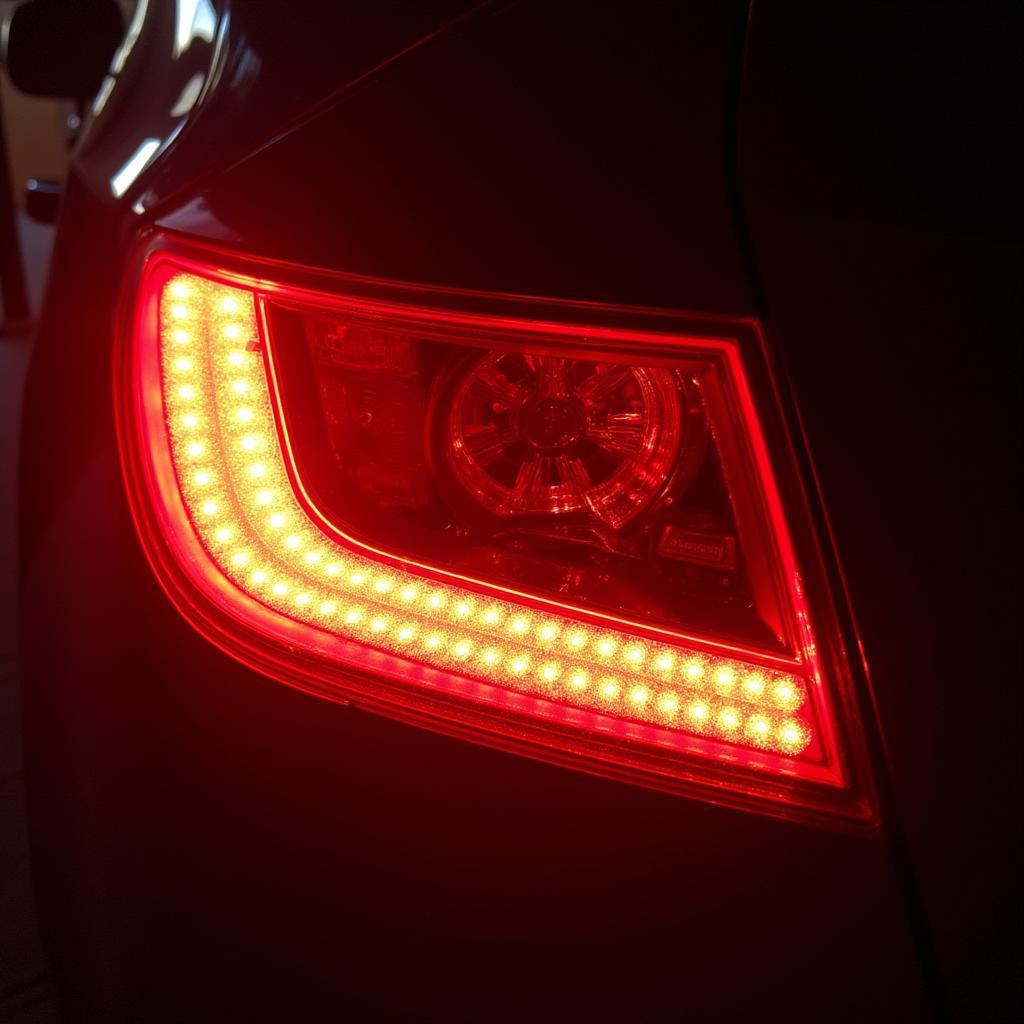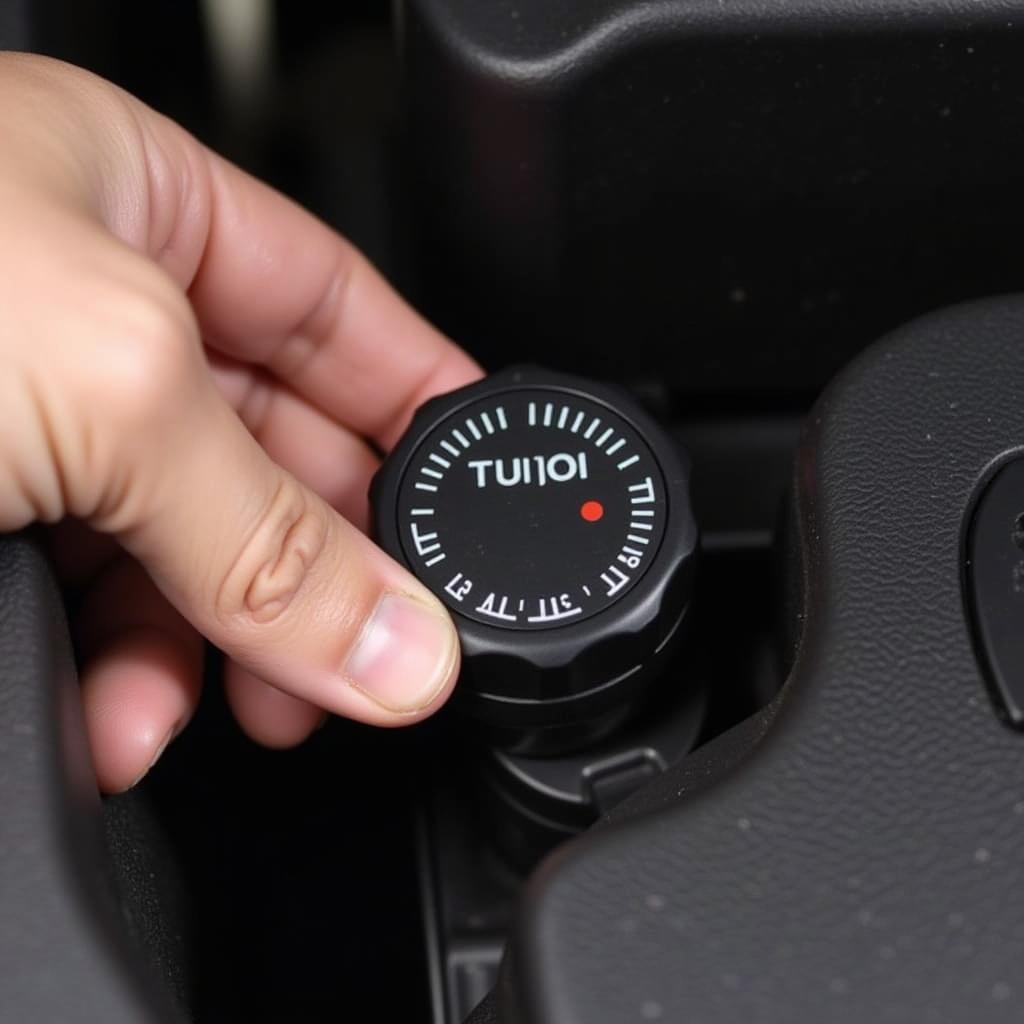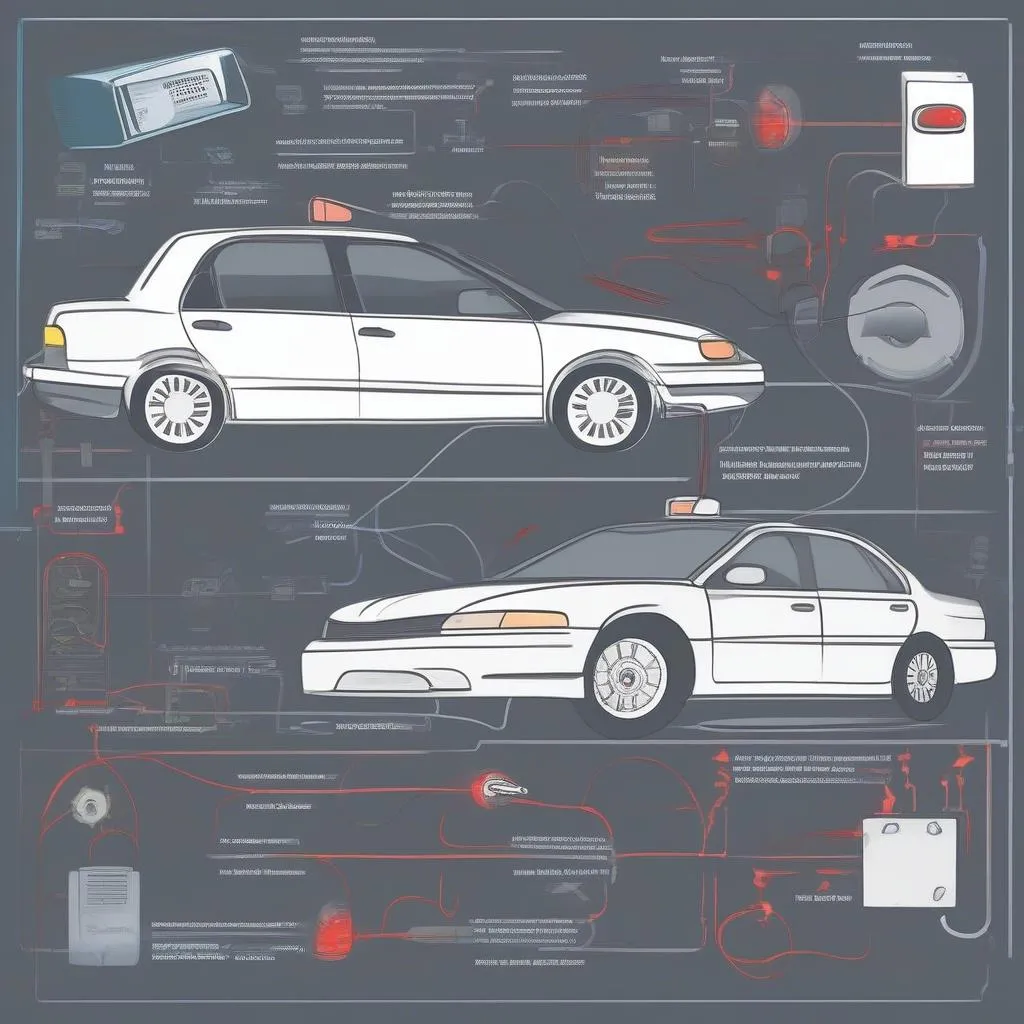An intermittent brake light warning light can be a frustrating and potentially dangerous problem. One minute it’s on, the next it’s off, leaving you unsure of what to do next. This article will cover the common causes of an intermittent brake light warning and provide a step-by-step guide to help you diagnose and fix the issue.
What Causes an Intermittent Brake Light Warning?
There are several reasons why your brake light warning might be flashing intermittently. These can range from simple issues like a burnt-out bulb to more complex problems with the wiring or brake light switch. Here are some of the most common culprits:
- Burnt-out Brake Light Bulb: This is one of the most frequent causes. Brake light bulbs have a limited lifespan and can burn out over time.
- Faulty Brake Light Switch: The brake light switch is responsible for signaling the brake lights to illuminate when you press the brake pedal. A malfunctioning switch can lead to inconsistent brake light behavior.
- Loose or Corroded Wiring: Over time, the wiring connections in your car’s electrical system can become loose or corroded. This can interrupt the flow of current to the brake lights, causing them to flicker or work intermittently.
- Worn-Out Brake Pads: Some vehicles are equipped with brake pad wear sensors that trigger a warning light on the dashboard when the brake pads reach a certain level of wear. If this sensor is malfunctioning, it might cause the brake light warning to illuminate erratically.
- Faulty Trailer Wiring (If Applicable): If you frequently tow a trailer, problems with the trailer wiring harness or connector can interfere with the brake light circuit, leading to intermittent warning light issues.
Diagnosing the Problem: A Step-by-Step Guide
Before you start replacing parts, it’s essential to diagnose the root cause of the intermittent brake light warning. Here’s a systematic approach to help you pinpoint the problem:
- Check the Brake Light Bulbs:
- Have a friend press the brake pedal while you inspect each brake light.
- Look for bulbs that are burnt out (completely dark) or flickering.
- If you find a burnt-out bulb, replace it with a new one of the correct type and wattage.
 Burnt Brake Light Bulb Close-up
Burnt Brake Light Bulb Close-up
-
Inspect the Brake Light Switch:
- Locate the brake light switch, typically situated above the brake pedal arm under the dashboard.
- Check the switch for any signs of damage, looseness, or adjustment issues.
- Try pressing and releasing the brake pedal several times while listening for a distinct clicking sound from the switch. If you don’t hear a click or the switch feels loose, it might need to be replaced.
-
Examine the Wiring and Connections:
- Visually inspect the wiring harness that leads to the brake light bulbs and the brake light switch.
- Look for any signs of damage, such as frayed wires, cuts, burns, or corrosion on the connectors.
- If you find any damaged wires or loose connections, repair or replace them as needed.
-
Check the Brake Fluid Level:
- Locate the brake fluid reservoir and check the fluid level. It should be between the minimum and maximum markings on the reservoir.
- If the brake fluid level is low, add the appropriate brake fluid.
- Important: A low brake fluid level could indicate a leak in your braking system, which requires immediate attention from a qualified mechanic.
 Checking Car Brake Fluid Level
Checking Car Brake Fluid Level
- Consider Brake Pad Wear:
- If your vehicle is equipped with brake pad wear sensors, excessively worn brake pads could be triggering the intermittent brake light warning.
- Inspect your brake pads for wear and tear. If they appear thin or worn down, it’s best to have them replaced.
When to Seek Professional Help
While some causes of an intermittent brake light warning are easy to fix at home, others require the expertise of a qualified mechanic. If you’ve gone through the troubleshooting steps above and are still experiencing problems, or if you’re uncomfortable working on your car’s electrical system, it’s best to seek professional help.
Expert Insight
“Intermittent electrical issues, like a flickering brake light, are often early signs of more significant problems,” says John Smith, an ASE-certified master mechanic with over 20 years of experience. “It’s crucial to address these issues promptly to prevent potential safety hazards on the road.”
Conclusion
Addressing an intermittent brake light warning is essential for your safety and the safety of others on the road. By following the steps outlined in this guide, you can identify the root cause of the problem and take appropriate action. If you’re unsure about any aspect of the diagnosis or repair process, don’t hesitate to consult with a trusted mechanic.

